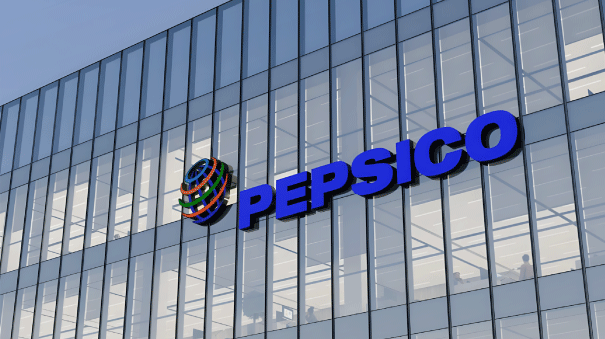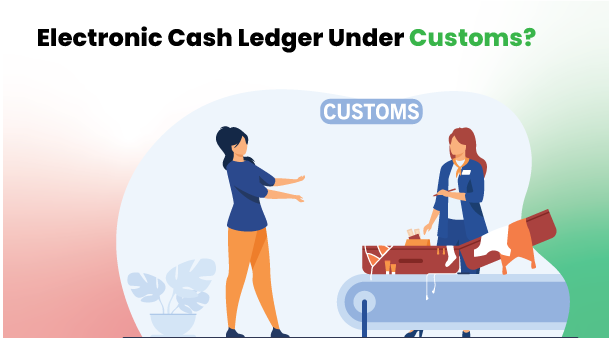With an eye on ease of doing business, the Central Board of Indirect Taxes & Customs (CBIC) has introduced certain important facilitation measures for the benefit of importers & exporters. It is the concept of payment of duty, interest, penalty, fees, etc. through the electronic cash ledger (ECL) (what is electronic cash ledger). This was statutorily introduced in the scheme of Customs Act, 1962 (Customs Act) in March 2018 Vide Section 51A of the Customs Act, 1962 inserted by section 80 of the Finance Act, 2018 (13 of 2018) w.e.f. 29 March 2018.
Section 51 of the Customs Act, 1962 states that Every deposit made towards duty, interest, penalty, fee or any other sum payable by a person under the provisions of this Act or under the Customs Tariff Act, 1975 or under any other law for the time being in force or the rules and regulations made thereunder, using the authorized mode of payment shall, subject to such conditions and restrictions, be credited to the electronic cash ledger of such person (electronic cash ledger gst), to be maintained in such manner, as may be prescribed.
The enabling provision envisaged various kinds of payments under customs and its allied laws being done through the ECL as well as refunds therein. To implement such payments through the ECL, effective from 1 June 2022 onwards, the Central Board of Indirect Taxes and Customs (CBIC) has notified the Customs (Electronic Cash Ledger) Regulations, 2022 (Regulations) vide Notification No. 20/2022-Customs (N.T.) dated 30 March 2022
The features included in the Regulations are as follows:
- Manner of maintaining an e-cash ledger– Form ECL-1: General rules state that payments made towards duty, interest, penalty, charge, or any other payment under Customs law and regulations must be made with the ledger on the common site. Ledger will not pay interest on deposits. The shared platform will also produce a unique identification number for any debit or credit transactions, which will be used for applicable customs declarations or official papers addressing imports and exports.
- Manner of making deposits in e-cash ledger– Form ECL-2: Deposits will be made by producing a deposit challan on the platform, which will be valid for 15 days. Deposits will be accepted by Internet banking through an authorised bank, NEFT or RTGS, and over-the-counter payment through an authorised bank (electronic payment system). Over-the-counter payments are limited to Rs. 10,000 per day. Such restriction, however, must not apply to deposits made by the Government Department or if the Jurisdictional Commissioner of Customs authorises a greater deposit.
- When depositing via NEFT/RTGS or over the counter, Form ECL-2 and a deposit challan must be submitted to the bank. When the money is credited in the ledger, the bank generates the unique identification number, which is also indicated on the deposit challan.
- Manner of making payment from the e-cash ledger– Form ECL-3: There are 2 ways to make payment- By the customs automated system and by the person (electronic payment). In the customs automated system, a person can give consent for auto-debit in his customs declaration. Whereby if the amount is available in e-cash ledger, payment Chillan will be automatically debited. The payment can be done by the person himself on the basis of his own ascertainment of duty or sum payable. The amount applied for from the balance will no longer be available for use by the person.
- Manner of maintaining electronic duty payment ledger- Form ECL-4: The debited amount will be displayed in the e-cash ledger, while the credited amount will be displayed in the e-duty payment ledger.
Refund- Form ECL-5: The balance in the electronic cash ledger after payment of duty, interest, penalty, fee, or any other sum payable may be applied for reimbursement on the common portal using such form by the person. When the application is received, the refund is expected to be processed or decided within 30 days of the application date. The reimbursement will be sent into the bank account of the individual who has registered with the customs automated system. The portal also provides registered users with the means to communicate their questions, concerns, or discrepancies. Furthermore, a registered individual must notify the common portal of any difference in his electronic cash ledger.
This will facilitate the DTA sales of SEZ units. In the past, there used to be a system of advance duty payment for SEZ units and developers, wherein they used to deposit a certain amount towards the import duties payable on their DTA clearances. As and when there is a need for clearing any shipment of finished goods, scrap, or waste into DTA, the unit or developer used to debit this advance duty register and pay the applicable import duties for such DTA clearance. However, for reasons best known only to the authorities, the scheme has been dispensed away. Hence the introduction of ECL will be a real blessing for those operating in SEZs.
In addition, this will facilitate faster clearance of the goods as there is no need to deposit the duties on a shipment‑basis each time with the bank, as the banks normally take their own time to process the payments and to reflect them in the Customs portal. Similarly, for those operating at multi‑locations with a centralized corporate financing structure, this scheme will facilitate centralized monitoring of all customs payment processes. Since this is a digital initiative by Wepsol, it helps in the audit trail of the transactions and reduces the physical documents (electronic document management software), thereby contributing to the cause of environmental protection also.
However the authorities have deferred the rolling out of this facilitation measure till 30th November 2022 vide Notification Nos.47-48/2022-Cus(NT) dt. 31st May 2022. Hence, the waiting time for the assesses has increased.

